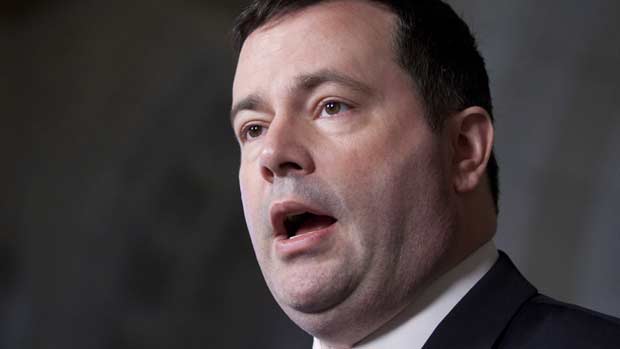Fictional Person Amanda is seventeen years old and in her second trimester of pregnancy. Scared of her parents’ reaction, she’s keeping her pregnancy a secret. But Target, where Amanda went to buy zinc and magnesium supplements the week before, knows everything. When she finds diaper coupons among the usual food and clothing ones, Fictional Person Amanda saves them for a later date, innocent of the fact that Target is an expert on the inner workings of her uterus.
In a fascinating New York Times piece, it’s explained how the “predictive analytics” units of major corporations and retailers can easily gather the bits and pieces of not only your consumer habits but your personal life floating around on the internet so as to effectively market to you. Target can compile data on your ethnicity, job history, marital history, and even your pregnancy status. As a regular recipient of Gmail and Facebook ads for dog food and gay cruises, I’m well aware that companies are trying to make money off my personal information. While it’s a little creepy but expected that Target will try to use my private information to market to me, I hold the Canadian government to much higher standards.
This is why it’s disappointing that in the latest move from Canada the country to Canada Corp. Ltd (CEO: Harper), the government displayed a personal information ethic no better than Target’s. Minister Jason Kenney profiled Canadians according to sexuality and then marketed government propaganda to gay citizens. Like a grocery chain marketing junk food as healthy, he sent an email extolling the virtues of nutrient-free, Canada Ltd.

Titled “LGBT Refugees from Iran,” the email, sent on Friday, is about how Kenney, as the Minister of Citizenship, Immigration, and Multiculturalism, is proud of Canada’s treatment of LGBT refugees. He wrote that he believes “Canada should always be a place of refuge for those who truly need our protection.” I wholeheartedly agree, which is why I don’t support Kenney. Since the Conservatives won a majority in May of 2011, the minister has transformed this country’s refugee and immigration policy, and not for the better: he has restricted refugee claimants’ health benefits, tightened spousal sponsorship rules, and even deported an American war resister. He has also given employers more power in selecting immigration applicants; and as part of the infamous Omnibus Bill-38 made changes to the Temporary Foreign Workers Program that will allow employers to pay migrant workers 15% less than minimum wage. Lest this move lead you to believe that Kenney is against all types of immigration, you should know that he may have granted Conrad Black, a convicted criminal who renounced his Canadian citizenship in order to claim nobility status in the UK, a temporary residence permit. Datejie Green, one of the many recipients of Kenney’s email, pointed out that the government is trying to pinkwash its activities by making them seem LGBT friendly, when really, reforms such as refugee health cuts have a direct impact on gay and lesbian refugees who are often in need of trauma care and basic medical assistance.

Many who opened their inboxes to the surprise email from Kenney weren’t only angry at the message’s false political advertising. They also wondered how the Minister could possibly know their sexual orientation. They were creeped out. Meredith Richmond of Peterborough was not one to pine for a private Gchat with Kenney — quite the opposite. She had never supported the Conservatives and wondered how the Minister had gotten her personal Gmail address along with information on her sexual orientation. Little did she know that when she signed a 2011 petition on Change.org supporting a gay artist from Nicaragua facing deportation, a form letter with her reply email address was sent to Kenney’s office, where a program saved her and others’ information for later use.
A spokesperson for the privacy commissioner’s office has called the event troubling but says there’s not much that can be done. Though political parties gather enormous amounts of highly personal information about citizens, Canadians have no legal rights when it comes to information amassed by parties and held in databases for partisan use; nor is it illegal for corporations to compile your information.

Some may argue that with everyone’s information floating around, the personal information of one single person hardly rings any alarms. Yes, we are putting a lot of information out there, but so is everyone else. It’s as though everyone’s information creates all this noise which takes the focus off of individuals. With all the Facebooks, Twitters, and Tumblrs, have we crossed the threshold of the visible into the post-visible, or invisible? The greater the number of people who put their information out there, the less it will be seen, ironically.
But anonymity is a privilege dependent on circumstance. Anywhere besides an A-Camp-like environment, a heterosexual couple holding hands has the privilege of anonymity while a same-sex couple doing the exact same thing is made to be hyper-visible. Depending on their city, their class, and their ethnicity, the individuals in the lesbian or gay couple could even be in danger.
Just like in real life, being a minority activist on the internet, be it a gay activist or a feminist activist, makes you stand out, and standing out as a minority can have consequences. Like the Canadians who signed the petition from which Kenney pulled his information, it’s brave to tie your name to a cause most people don’t know or care about, but it’s also a risk. Many queer people have a lot to lose if knowledge of their internet activity falls into the wrong hands. While being gay on the internet has obvious and wonderful advantages, like realizing you’re not the only weirdo gay nerd on the planet, it doesn’t change the fact that when it comes to privilege, you’re at a disadvantage. This is why a queer person’s loss of internet anonymity has the potential to have significantly more dangerous consequences than that of a straight person’s. In a hostile environment, you could get kicked out of your house or even have your life put at risk. And even if the people around you are supportive and wonderful, society at large is not, so it’s understandable to feel uncomfortable, if, as a gay person, knowledge of your queer internet activism falls into unexpected hands (like, say, Jason Kenney’s) to be then used for propaganda you don’t agree with. Even though (as far as I know) none of the email recipients were put in danger, Minister Jason Kenney of Canada Corp. Ltd needs to understand you just don’t mess around with the privacy of queers on the internet.







